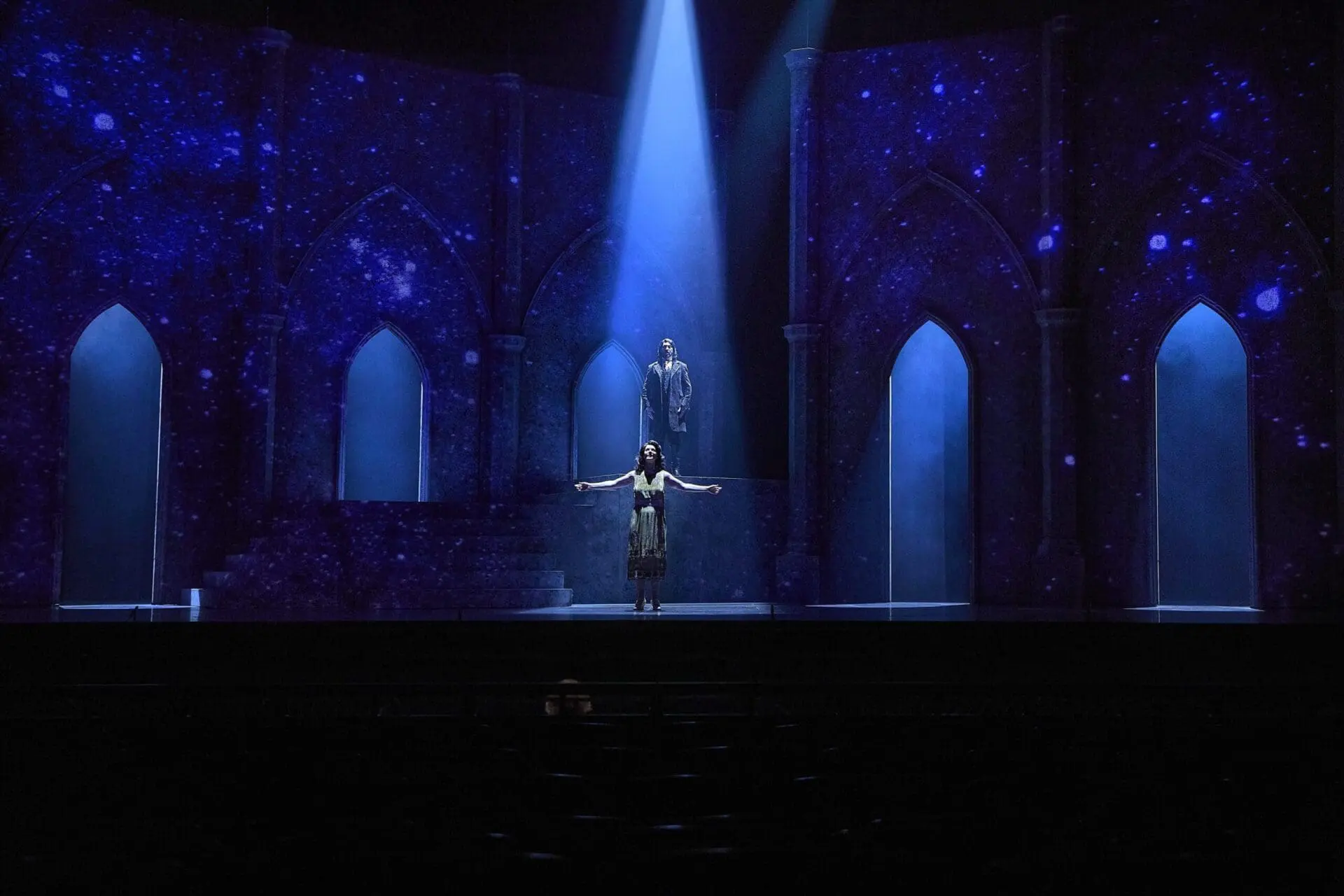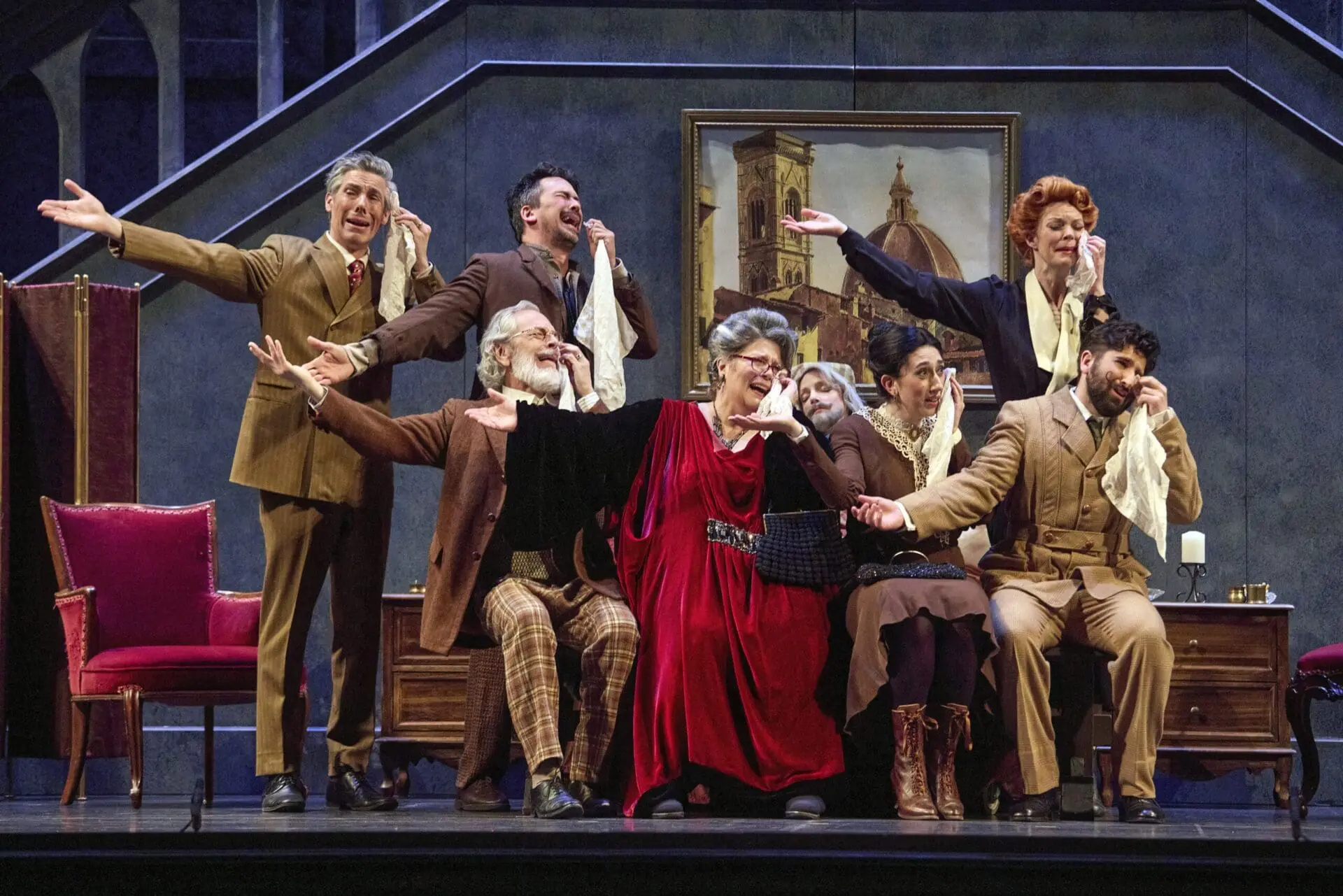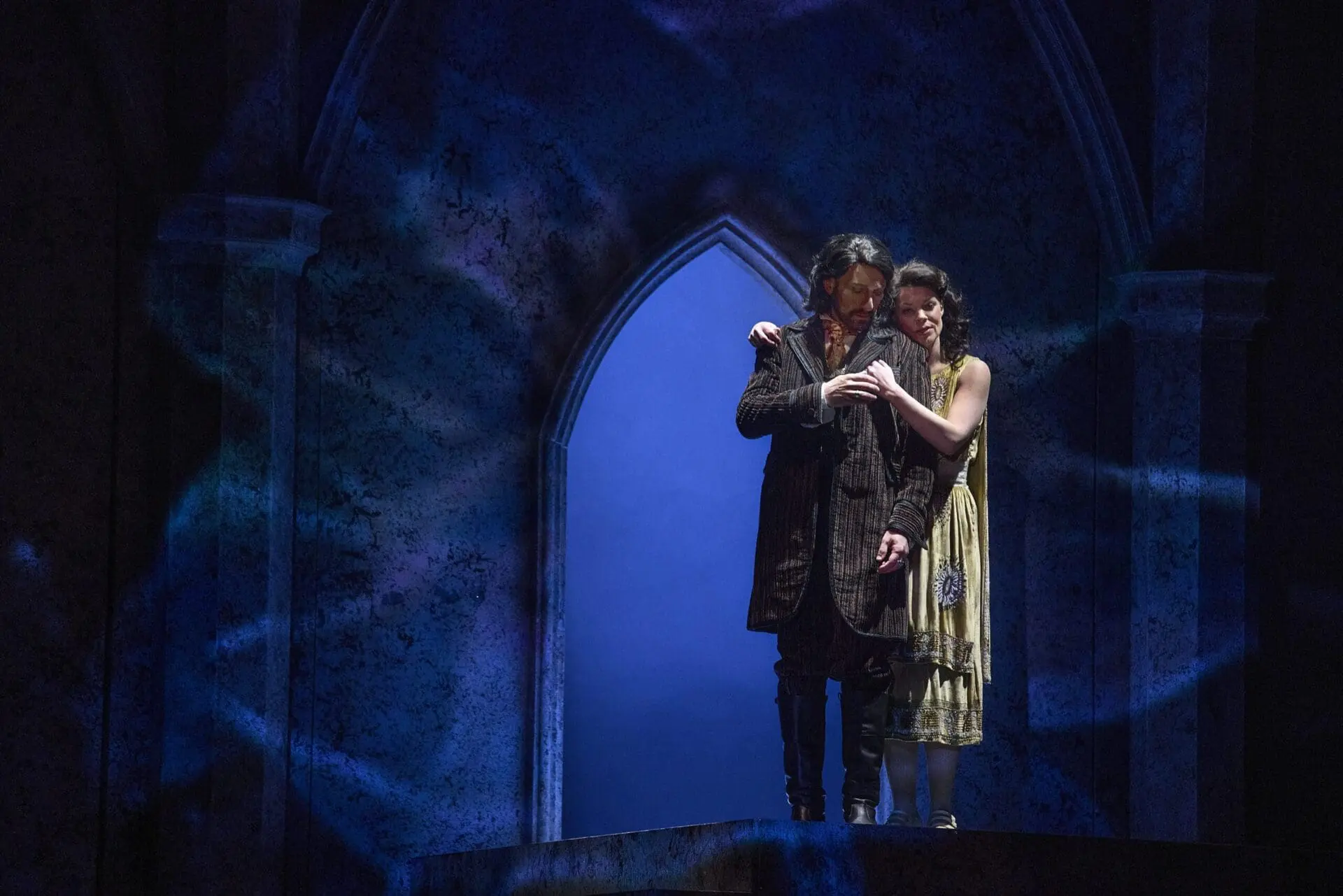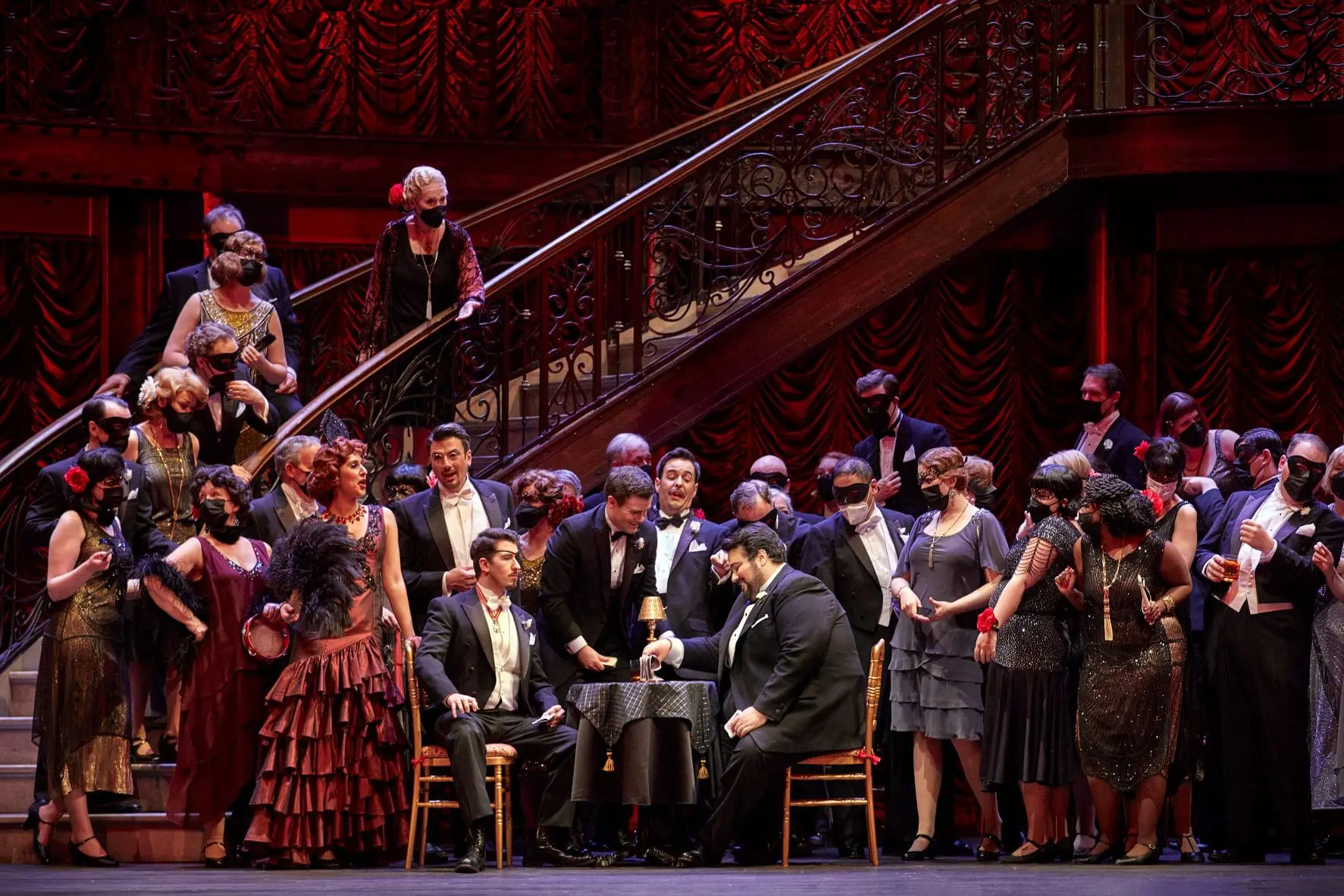Calgary Opera’s final offering of its 2024/25 season consisted of a double bill of two one-act operas, Bartók’s Bluebeard’s Castle and Puccini’s Gianni Schicchi. While these two operas occupy different sound worlds, both received their first performances in the same year: 1918. Much care and effort went into the production of both operas, and with excellent results, most notably in the visual and dramatic side of things.
The production had a strong local slant: Scott Reid, the set and lighting director, and Heather Moore, in charge of costumes, are both Calgary-based. Together, they delivered high-quality work in their respective areas. The stage direction by Alain Gauthier, a veteran of many successful opera productions in Canada and elsewhere, stayed close to the spirit of each opera despite their striking contrast as works. The direction was pointed and astute, the gloom of Bluebeard’s Castle and its backdrop of horror contrasted the brisk Italian comedy of Gianni Schicchi.
Jonathan Brandani, the company’s artistic director, led the orchestra, continuing his impressive run of sensitive, highly musical performances as a conductor. As comfortable conducting Bartók as Mozart or Donizetti, Brandini coaxed the best from a willing Calgary Philharmonic Orchestra in musical scores of considerable complexity. The orchestra played with impressive authority, delivering the lush, Debussy-style elements of the Bartók opera with keen understanding and elegant playing. The opening prologue, read in impeccable English by local bass Paul Grindley, made for an excellent way to approach the world of dark intrigue in Bluebeard’s Castle.
With respect to Bluebeard’s Castle, the meaning of the opera is, to say the least, enigmatic and veiled. Usually, this is an invitation for the director to provide a commentary through the production of what the opera might be about. In this Calgary production, Gauthier presented the opera as written, leaving the audience to determine whatever might be the deeper meaning. This approach, respectful of the composer and librettist, permitted the underlying psychological elements to emerge and, as intended, required the audience to ponder and think.
A turn-of-the century mysticism, similar to that of Maurice Maeterlinck (the librettist for Debussy’s Pelléas et Mélisande) as well P.D. Ouspensky and other Eastern European mystics, suffuses the opera, and it is well known that the taciturn Bartók was fascinated with thinkers and writers of the time who probed the human condition of solitude and loneliness. Musically, this is the work where Bartók is most dependent on his youthful studies of Debussy. The music for the various doors changes impressionistically with what is inside each room, and the pentatonicism that was to become so strongly part of Bartók’s later, more astringent work is a key element of the score.

Photo Credit: HarderLee Photography
On Scott Reid’s set, director Alain Gauthier presented Bluebeard’s Castle as written
The two singers for Bluebeard’s Castle were baritone Giuseppe Altomare and soprano Sara Gartland, Altomare previous heard in Calgary in the company’s production of Verdi’s Macbeth. Both sang and acted extremely well, although Altomare did not quite project the heft or bark that a true Eastern European bass would bring to the role. More generally, however, his ample voice projected very well, and his Italian manner of singing humanized the role more than in other performances I have heard.
Gartland also has the strong voice needed to project over the very full orchestration. The role itself is difficult as much of it lies low in the voice, inherently more comfortable for a mezzo-soprano. But the role also requires a high C, normally reserved for sopranos. As directed by Gauthier, both performers were completely convincing in their parts dramatically and nicely contrasted: the slow, inward Bluebeard a foil for the more vivacious Judith.
Gianni Schicchi was updated to the 1920s, giving just a tinge of the historical but graspable as a modern story. The topic of feigned tears and avarice at the death of a rich relative is as topical now as in the distant past. The Italian-style comedy was beautifully handled, with crisp timing and endless fun in the comic detail. Gauthier has directed this opera before to acclaim, and it is not hard to see why.
Giuseppe Altomare performed the title role, one he has performed many times. His comfort in the part showed in the effortless vocal side and in the movement on stage. The roles of the two lovers, Lauretta and Rinuccio, were delicately played and sung with exquisite lyricism by Kirsten LeBlanc and Christopher Oglesby, LeBlanc making the most of “O mio babbino caro.” Veteran bass Alain Coulombe as Simone had the most ample voice of the many secondary characters, too many to enumerate here, and he was matched in comedy and fine singing by Marianne Cornetti as Zita, the older female relative of the not-so-dearly departed.
Both operas were very successful and much enjoyed by the sparser than usual audience. Probably the name of Bartók kept all but enthusiasts and regulars away. This must be discouraging for the company, which obviously tried hard to present something interesting and new. Just why audiences were full for modern operas such as Little Women, Silent Night, Dead Man Walking, Filumena and others, but not for this pair of operas, remains a mystery. With all the many efforts of companies to offer audiences new works and to keep the art form vivid and alive, there seems to still be an entrenched conservatism that is hard to dislodge.
Artistically, however, the company has every right to be proud of what it accomplished in this pair of fine productions and in its season more generally.

Photo Credit: HarderLee Photography
The family “mourns” the passing of Buoso Donati in Gianni Schicchi
Opera Canada depends on the generous contributions of its supporters to bring readers outstanding, in-depth coverage of opera in Canada and beyond. Please consider subscribing or donating today.














